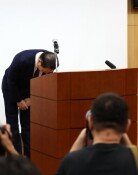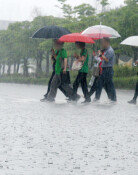[Editorial] Engineering Koreas Rise
[Editorial] Engineering Koreas Rise
Posted October. 23, 2006 07:01,
Seoul National University (SNU) College of Engineering and the National Academy of Engineering of Korea (NAEK) selected 60 engineers that brought Korea to prosperity. They are representative of numerous engineers that have contributed to the nations industrial development for over 60 years since liberation from the Japanese colonial rule. The engineers created equipment and facilities for industrialization on barren fields and shed their sweat and tears in developing technologies, but so far, they have not been properly recognized for their contributions. It is meaningful, though belatedly, to add them to the Hall of Fame to make them remembered for a long time.
Industrialization was a huge transformation in the history of Korea, where mountainous areas account for 70 percent of the territory and whose climate is not appropriate for agriculture. In the Annals of the Joseon Dynastythe official historical record of 472 yearsthere are countless remarks that people suffered from hunger due to years of bad harvest and famine. After most of the population stuck to farming, generation after generation, in a country where farming does not work, the only consequences of all this were nothing but hunger and despair.
The long-standing, persevering fate was finally changed by industrialization. The economic development achieved by industrialization made crucial contribution to democratization, too. Engineers served as a driving force in transforming a nation whose per capita income was only 67 dollars back in 1953 into the worlds 11th-largest economy and liberal democracy.
When it came to improving peoples livelihood and achieving balanced development, the engineers also made more contribution than anyone without boasting of what they have done. The current administrationwho took power by emphasizing their being democratization forces but only deteriorated peoples livelihood for almost four years need to reflect upon themselves and contemplate the true meaning of balanced development.
In order to become a truly advanced nation, whose economy develops further and whose people have better quality of lives, a country ought to create an environment where engineers are treated as they deserve. Among the 60 representative engineers selected out of various industrial fields, there are not so few names that have remained widely unknown. We find it shameful to have not known them so far. One big reason for the ongoing crisis of science and engineering majors is that technical talents have been poorly treated.
We would like to give a big applause to the 60 proud engineers, selected out of 1,470 candidates, and all the other engineers who have worked together behind them. We hope that the nation and society will continue to make sincere efforts in nurturing best talents in those fields in the future and that there will continue to be numerous engineers lining up to be added to the Hall of Fame.
Headline News
- 55%of SNU Hospital professors start indefinite suspension from today
- DP intends to complete the composition of National Assembly this week
- Too high bonus for head of reconstruction associations causes controversy
- 13 infectious diseases sharply increase across the world
- International Skating Union revises major rules







